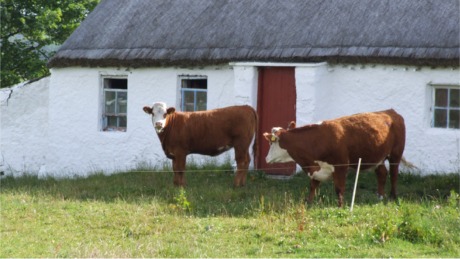|
|
What's the beef with trade deal?
10.07.19
AFTER 20 years of
negotiations, the European Union has concluded a
trade deal with the four Mercosur countries –
Argentina, Brazil, Paraguay and Uruguay. This is the
largest trade deal that the EU has ever negotiated,
covering 773 million people.
It is a trade deal that offers significant
opportunities for Irish businesses, of which nearly
300 are already exporting to Mercosur, but also
presents real challenges, particularly to the beef
sector in Europe.
As with any trade deal, this one has involved
compromises and the EU has had to make some
important concessions as part of the overall
balance. One of those concessions involves a quota
of 99 000 tonnes which can be imported from the
Mercosur countries at preferential tariff rates.
This amounts to just over 1 per cent of total EU
beef consumption.
Speaking after the conclusion of the negotiations,
EU Commissioner for Agriculture & Rural Development,
Phil Hogan said, “the concession of a beef quota to
the Mercosur countries is of understandable concern
to Irish beef farmers. The Commission appreciates
the sensitivity of the beef sector in Europe and,
particularly in Ireland, which exports 90 per cent
of what it produces.” |
 |
|
The EU-Mercosur trade deal
offers significant opportunities for local
businesses but also presents real challenges,
particularly to the beef sector in Inishowen. |
Given the sensitivity
of the beef sector, the deal includes a number of
important safeguards which have been put in place to
protect the interests of Irish farmers and
consumers.
The EU is a global standards setter and will insist
that all beef and other food products imported into
Ireland comply 100 per cent with the EU’s stringent
food safety standards. We can say, categorically,
that beef or other food products imported from
Mercosur will not be of a lower standard than those
produced in Europe. This will be the responsibility
of the EU’s Food & Veterinary Office, based at
Grange in County Meath.
Commissioner Hogan also explained that these new
arrangements will not be introduced overnight: “This
beef quota will be implemented over several years,
not starting before 2022 and then only over the
following five years in annual instalments. In other
words, it will be up to 2028 before this deal is
fully implemented.”
The deal also includes a safeguard clause, which can
be used if the EU agri-industry is seriously
affected by increased imports. This is the first
time that such a measure was included in any free
trade agreement.
The Commissioner also announced that financial
assistance for farmers would be made available if
necessary – “Given the potential impact of this deal
on the agri-food sector, the EU will have in place a
support package of up to €1 billion to assist
farmers, including Irish beef farmers, in the event
of significant market disturbance. This is the first
time that any such funding has been made available
in the context of any trade agreement.”
The Commissioner concluded by welcoming “the
Taoiseach’s commitment to undertake a detailed
economic evaluation of the deal before the Irish
government delivers its verdict.” |
|

